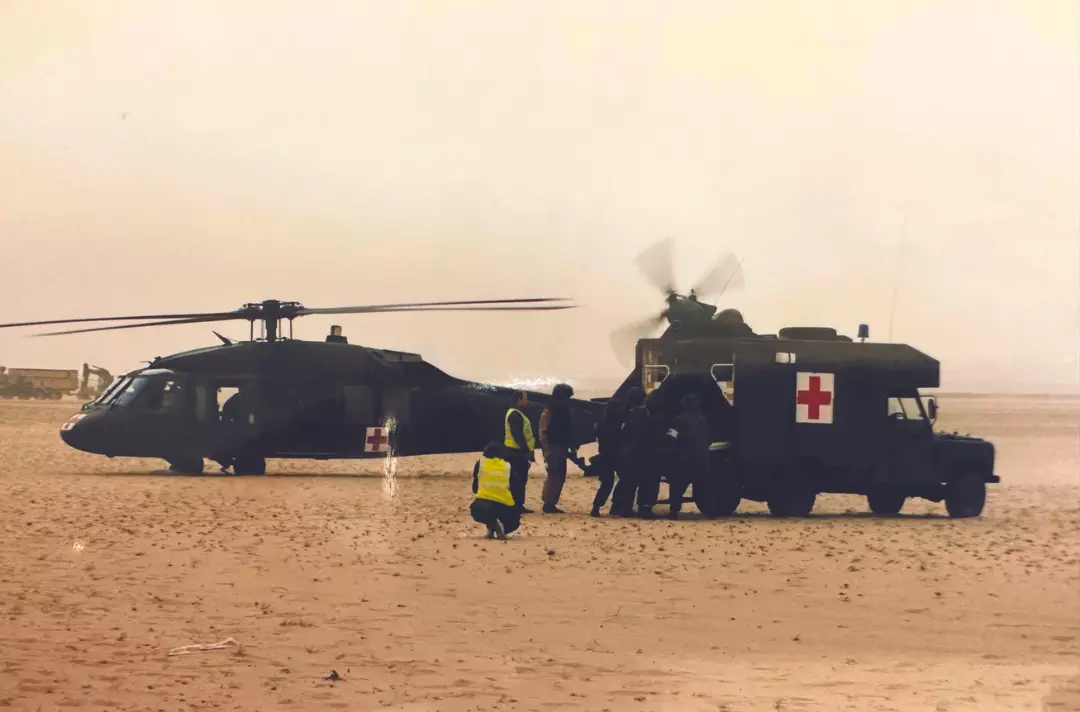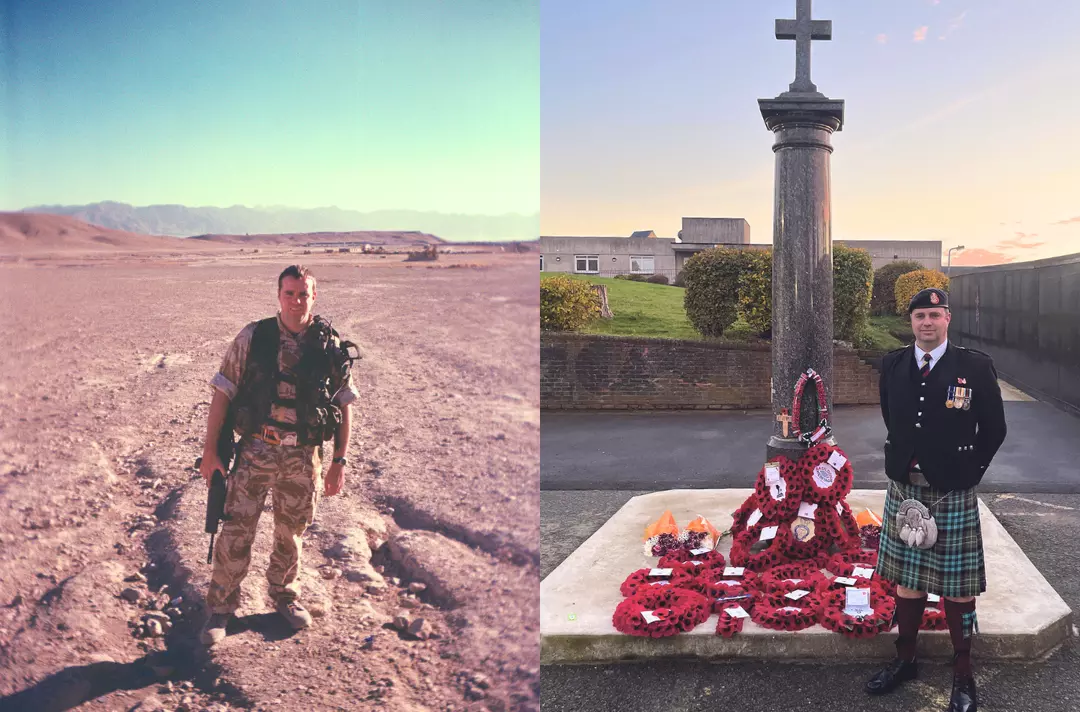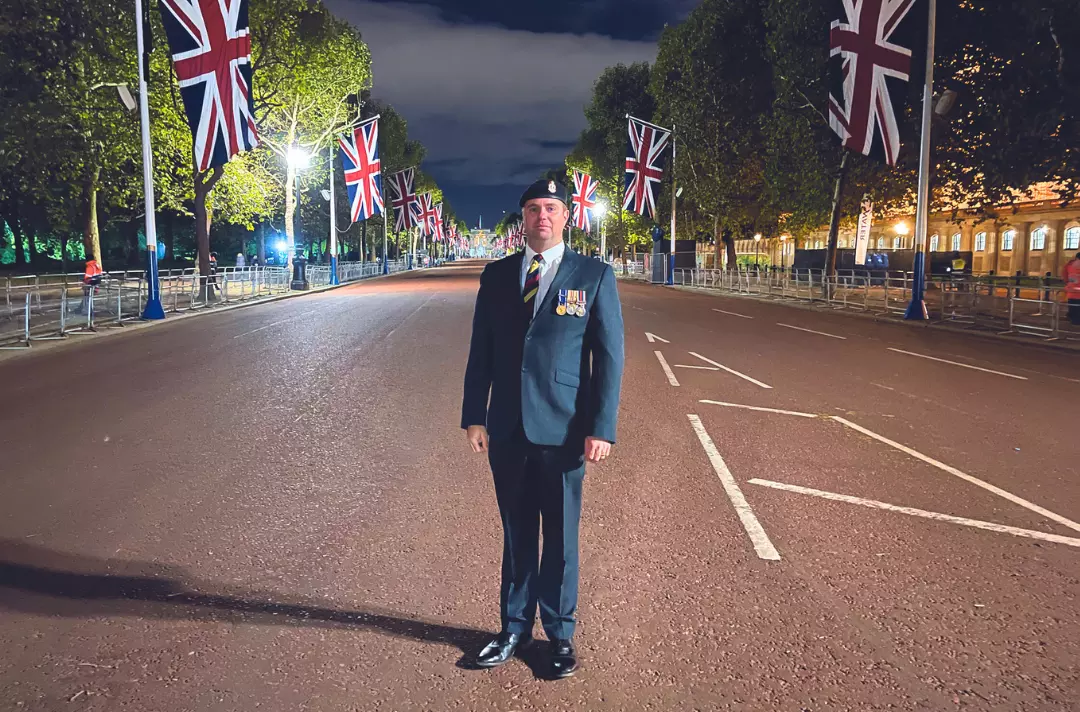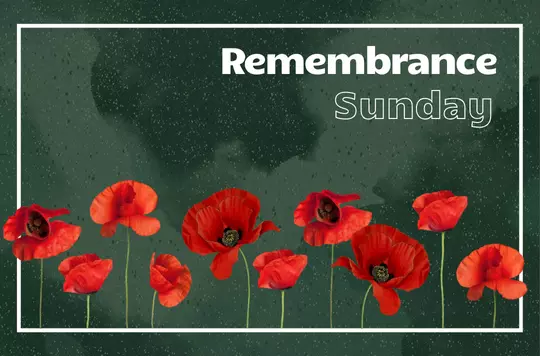9 November 2023
Finding hope after the mental wounds of war
Claire Brine
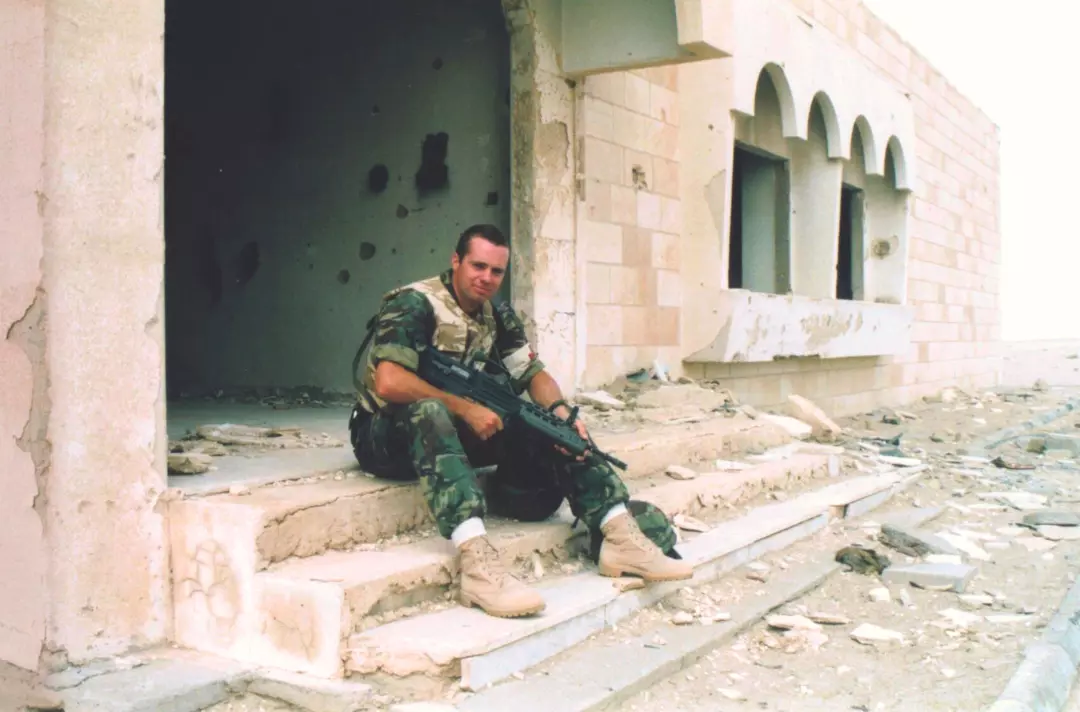
To mark Remembrance Sunday, veteran Kevin Russell (Basildon) reflects on life in the British Army and how his faith in God helps him to cope with PTSD.
‘I heard an explosion and saw a flash. Missiles were coming down. Suddenly, I thought: “I could die here. If a missile hits right now, I’d know nothing about it.” I kept walking, got the injured guy to the bunker and we were safe. But that night I couldn’t sleep. I just lay in bed, shaking.’
When Kevin Russell, a former medic in the British Army, talks about his military career – which took him to Oman, Bosnia, Iraq and Afghanistan – there are certain stories that make for harrowing listening. In Iraq, particularly, the threat to his life triggered a reaction in him which, years later, resulted in a crushing diagnosis.
‘That night when I couldn’t sleep, I kept thinking about the missiles and how my number could have been up,’ he reflects. ‘The next morning, something happened to me that happens to a lot of soldiers and medics. I went numb emotionally.
‘Locking my feelings away enabled me to do my job better, because I wasn’t worried about dying any more. I could just get on with whatever was in front of me. But it also meant that I didn’t deal with anything – and that’s what led to my PTSD and, ultimately, a breakdown.’
In February last year, Kevin – who left the army in 2005 – told his wife, Lorna, that he ‘couldn’t do it any more’. Admitting to battling suicidal thoughts, he phoned Combat Stress, the charity that provides clinical treatment and mental health support to military veterans.
‘I was signed off from work for five months,’ says Kevin, who today works as a Mental Health Act manager in Basildon. ‘During that first week, all I could do was cry. I was scared to go out. I knew things were bad, because taking my own life seemed to be a better option than facing my feelings. But I knew I couldn’t put my family through that.
‘After an appointment with a nurse who explained to me how PTSD affects the brain, I had weekly appointments with a consultant psychiatrist. We talked about some of the events that I’d experienced in the army.
‘Sometimes I’d tell her a story which took me about 10 seconds to say out loud, but then she’d help me to pick it apart, and that’s when I realised that there was so much more to it. I had to find a way of making peace with all the things that had happened to me. I also had to accept that a lot of what happened wasn’t my fault.’
Kevin joined the army in 2000 and trained as a combat medical technician. The idea of serving his country had appealed to him since childhood.
‘Initially, I wanted to be an infantry soldier,’ he says. ‘But in my final interview before I started basic training at Lichfield, I was convinced by a sergeant to join the medics. It felt like a great opportunity to develop and learn different skills, and there were opportunities all over the world. I remember thinking that I could get a good long career out of this.
‘My first job as a medic was with a general support regiment in Aldershot. It was my job to treat casualties, then send them back to the front line or transfer them to hospital, depending on their injuries. I’d also do the daily sick parade, dealing with soldiers’ coughs, colds, ingrown toenails and that sort of stuff.
‘Sometimes my duty was to be on the ambulance, which meant you were waiting for calls to come in, then you’d have to blue-light it off to wherever you were needed. I was trained to do field surgery, so I could do minor procedures like tracheotomies, but basically the medic’s job was to stabilise the casualties before evacuating them to a place where doctors could treat them properly.’
In 2001, Kevin spent three months in Oman, providing medical aid to the army, navy and air force troops taking part in Exercise Saif Sareera. The following year, he travelled to Bosnia, where he spent six months running a medical centre as part of a Nato peacekeeping mission.
‘There were no real threats during those times,’ he says. ‘Oman was good in that it was my first overseas job and I got used to how everything worked. In Bosnia, we were based up in the mountains, so it was a beautiful place to be.
‘Going to Iraq felt very different. It was the start of 2003, and we knew that we were going into a war situation. We didn’t know exactly what we would be facing. But we came under fire from long-range missiles many times.’
It was during this time that Kevin began to consider the possibility that he might not make it home.
‘When the air-raid warnings went off, we used to go into these little shelters positioned next to our medical facility,’ he explains. ‘But if we had a casualty who was too ill to be moved – perhaps they had a spinal injury, for example – then a medic would have to stay with them.
‘One day, my staff sergeant was asking for a volunteer to stay behind, and I offered. It sounds strange, but I said to him that I’d rather die than one of my colleagues. I had a faith – and I knew that many of them didn’t. I wanted to give them the chance to live.
‘At this point, another colleague piped up: “Yeah, I volunteer Padre to stay behind because God will look after him!” Since basic training, I’d been given the affectionate nickname of Padre. Everyone knew I was a Christian.’
A few weeks later, when the air-raid siren sounded, Kevin remained with an injured soldier while missiles dropped nearby.
‘Everyone else went off to the shelter, but I stayed with this guy and tried to keep him calm,’ says Kevin. ‘He was very nervous and, in the end, said he wanted to move. Slowly, I helped him walk to the shelter, though we could hear these explosions happening around us. That was when I thought: “I might die here.”’
While Kevin was relieved to make it through the missile attack, he was finding it increasingly difficult to cope with the unpredictability of life in the military.
‘I was jumping from one thing to the other,’ he explains. ‘Being under fire is such a waiting game. There were a number of times when I thought I might die. You can imagine how stressful that is. But then there were also days which were mundane because you were checking medical equipment or dealing with soldiers who had diarrhoea. Switching between the two was what we dealt with every day.
‘Through it all, I carried on. I knew there were problems, but I ignored how I felt and tried to lock everything away.’
In the toughest times, Kevin sought comfort from his Christian faith. His relationship with God had always been an important part of his life.
‘I was honest about it from the start,’ he says. ‘And I got the nickname Padre because my colleagues joked that I was on a “hotline to God”. Some of them wondered why I’d be reading my Bible before going on guard duty in the middle of the night. Others said: “When you’re bothering God tonight, can you mention this problem for me?”
‘If people wanted to ask me about faith, I’d always be happy to talk.
‘But in Iraq, my faith, which had always been quite strong, became unemotional. I knew that God was there, and I continued to pray and read my Bible, but I didn’t feel connected to him. I think I had locked up my feelings so much that I struggled to hear him.’
In 2005, Kevin gave his notice to leave the army, wondering where God would lead him next. He married Lorna, settled in Basildon and worked in various temporary jobs. Then the army contacted him, asking him to consider being a reservist on tour in Afghanistan. He said yes.
‘It was supposed to be an easy tour for three months,’ he says. ‘But it all changed very quickly when a lone gunman came out and started shooting at two of our vehicles. One young lad lost his life, and six of the seven other soldiers had gunshot wounds. When they reached us, I tried to look after them. They were all in shock.
‘The worst incident of all was when we had to deal with a twin suicide bombing. So many lives were lost that day. It had a major impact on my mental health.’
After serving his short stint in Afghanistan, Kevin returned home. He settled into married life and found another job. But adjusting to normal life after being in a war zone was difficult.
‘I had nightmares for a while,’ he says. ‘And I couldn’t deal with things. If I was out for a walk, I’d suddenly panic that someone had a rifle aimed at me. Or if I heard a loud noise, I had to tell myself: “That’s not a bomb, it’s just a car backfiring.” Sometimes I found it hard to walk on the grass in the park, because I kept having to assure myself it wasn’t a Bosnian minefield.
‘I knew how I was feeling wasn’t good, but I kept on suppressing everything. I told myself I’d be fine. And then Covid happened.’
Working for the NHS through a global pandemic, caring for a father-in-law who had terminal cancer and also worrying about his own dad who had suffered a stroke pushed Kevin to the limit. He told Lorna that he couldn’t cope any more. Struggling to see a way forwards, he ranted at God.
‘I asked him why this was happening to me,’ he says. ‘Having PTSD meant I couldn’t read my Bible. I couldn’t go to church. Going out the front door scared the life out of me. I was shattered. My confidence was at rock bottom.
‘But then I tried to rely on what I knew about God from the past. I knew he hadn’t changed. I knew that he was with me. I knew people at Basildon Salvation Army were praying for me. They knocked on Heaven’s door at a time when I couldn’t.
‘I also remembered that, in the Bible, it says that Jesus wept. And if Jesus could cry, then it was OK for me to cry too.’
With the help of therapy, medication, friends, a loving family and a faith in God, Kevin grew to accept his diagnosis and continues to find a way to live with it.
He is back at work, back at church, open about his mental health and slowly rebuilding his relationship with God.
‘When I was broken, it was God who put me back together,’ he says. ‘He guided my footsteps all the way through. I may not have a clue what the future holds for me, but I know that God has a plan for my life – and I’m open to whatever it might be.’
Interview by
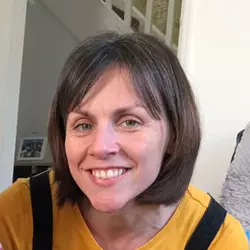
Claire Brine
Staff Writer, War Cry
Discover more
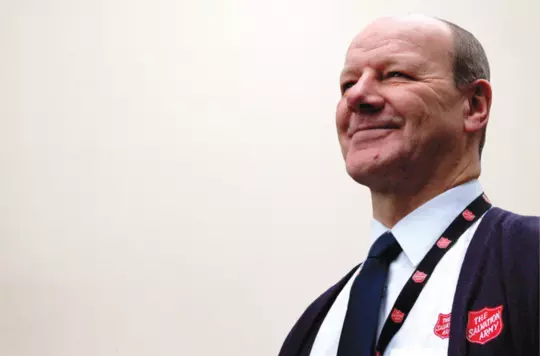
Secretary for Mission Lieut-Colonel Drew McCombe (THQ) reflects on what it means to belong to Jesus.
